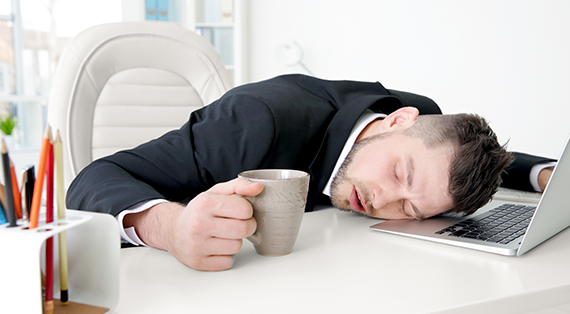Introduction:
Sleep, or lack of it, is the main issue for the majority of my clients presenting with anxiety linked conditions. As a result it can be hard to work out if sleeplessness has caused the anxiety, or the anxiety has caused the sleeplessness . I covered how you can learn to control your anxiety in my blog on controlling your thoughs which you can find here. https://klhclinic.co.uk/controlling-your-thoughts-can-make-you-happier. Here we will look at how to improve your sleep.
Sleep is an essential component of our daily lives, the best self help therapy we can access, and its free! Most importantly it serves a vital role in maintaining our physical, mental, and emotional well-being. including memory consolidation, hormone regulation, and immune system maintenance. Unfortunately, many individuals struggle, which can significantly impact their overall quality of life. In recent years, hypnotherapy has emerged as a promising approach to tackle this.
Importance of Sleep:
Sleep plays a fundamental role in promoting optimal cognitive functioning. During the night, the brain processes and consolidates new information, enhancing learning and memory retention. Inadequate sleep can impair concentration, decision-making, and problem-solving abilities, negatively affecting academic and professional performance. Additionally, chronic insomnia has been linked to an increased risk of developing various physical and mental health conditions,. These include obesity, diabetes, cardiovascular diseases, anxiety, and depression.
Insomnia and Anxiety and Depression
Sleep comes in 4 phases: These 4 phases last about 90 to 120 minutes in total. As the night goes on the duration of each section will vary.
Drowsy – we are in a very light sleep where we can hear sounds around us. Heartrate and breathing slows in this phase. If you listen to a self hypnosis MP3 when you get into bed, even if you fall asleeep, you will still hear and process it, as long as it isnt longer than about 30 minutes.
Restoratative – this is the period where your body rests, repairs and restores. it has 2 phases, light and deep In the light sleep phase your breathing slows still more. Muscles relax and your temperature drops. About half your night’s sleep is spent in this phase. In deep sleep brain waves are at their slowest frequency, but their highest amplitude.
Rapid Eye Movement (REM) is the part of the cycle where your brain is very active,. It is processing the events of the day and stripping away the emotonal aspects of them to store as a narrative memory in your subconscious mind where you can control it. In this phase of sleep we rid our brain of anxiety that builds after stresses of the day’s events. It is the ONLY method the body has to process our stress.
Waking in the night
Do you find you you wake up in the night? Typically you might be wide awake, thoughts running around your mind, unable to settle and drift off again? This is often when the brain, overloaded with the work of the REM processing, will wake you, so it can stop. Often, it will be at the same times roughly, which reflects the 90 -120 minute sleep periods.

Difficulty Nodding Off
Frequently clients will report they go to bed after watching their favourite show on TV, answer a few emails or WhatsApps and then and toss and turn all night. They pick up their phone and read some social media, then try again. Ultimately they end up feeling tired and wretched all day. Why does this happen?
Cortisol
We, like virtally all day time awake animals are programmed so the early morning light causes the brain to send a squirt of adrenaline to wake us up and cortisol (a steroid and stress chemical) to give us energy to get through the day.
Essentially Cortisol controls the circadian rythm, in conjunction with daylight. As the light fades, our cortisol depletes and we run out of energy and feel tired and ready to sleep. But humans interfere with that process. We put on lights, watch fast moving images on the TV and then, even worse, we hold a bright lightsource close to our face just as we go to bed. Correspondingly the brain gets confused, thinks it must be morning and gives us more adrenaline and cortisol, so we feel anxious and restless.
This is especially bad for children’s brains! Its clear to see then, the best thing you can do is to turn the TV off, and put the phone down a good hour or two before bed time. Of course if its a habit you really cannot break, turn the brightness down to the lowest level you can and use night-time mode to avoid blue light.
How Hypnotherapy Can Help:
Hypnotherapy is a therapeutic technique that utilises hypnosis to induce a state of deep relaxation and heightened focus. It can be particularly effective in addressing both the underlying causes and the symptoms. Here are some ways in which hypnotherapy can help promote better sleep:
1. Relaxation and Stress Reduction: Hypnotherapy helps individuals achieve a state of deep relaxation, reducing stress and anxiety levels that often hinder a good night’s sleep. By guiding individuals into a calm and tranquil mental state, hypnotherapy can facilitate the release of tension and promote feelings of serenity, making it easier to enjoy a full night’s sleep.
2. Changing Negative Thought Patterns: Negative thoughts and worries can keep individuals awake at night. Hypnotherapy can help identify and modify these negative thought patterns and replace them with positive and empowering suggestions. By reframing negative beliefs and instilling more constructive thoughts, hypnotherapy can alleviate the mental barriers that disrupt sleep.
3. Addressing Sleep Disorders: Hypnotherapy can be beneficial for individuals with disorders such as insomnia, sleep apnea, or restless leg syndrome. By targeting the subconscious mind, hypnotherapy can help identify and resolve the underlying causes of these disorders, promoting better sleep quality and duration.
Establishing Healthy Habits:
Hypnotherapy can assist individuals in establishing healthy routines and habits. By reinforcing positive behaviors and associations with sleep, hypnotherapy can assist in creating a conducive sleep environment, maintaining a consistent sleep schedule, and implementing relaxation techniques before bedtime.
Conclusion:
In conclusion, sleep is a crucial aspect of our overall well-being, influencing various aspects of our physical and mental health. The significance of sleep cannot be overstated, and addressing sleep-related issues is essential for maintaining a healthy and balanced lifestyle. Hypnotherapy offers a promising approach to improving sleep patterns by addressing the underlying causes of sleep disturbances and promoting relaxation and positive thought patterns. By harnessing the power of the subconscious mind, hypnotherapy can pave the way for restful and rejuvenating sleep, leading to improved overall health and well-being.
you can read more about sleep at https://www.sleepfoundation.org





2 Comments
Jane
I love your blogs, when I read them I hear your voice in my head reading it out loud for me, very soothing.
Lynn Mildner
Thank you Jane. What a lovely comment!
Comments are closed.